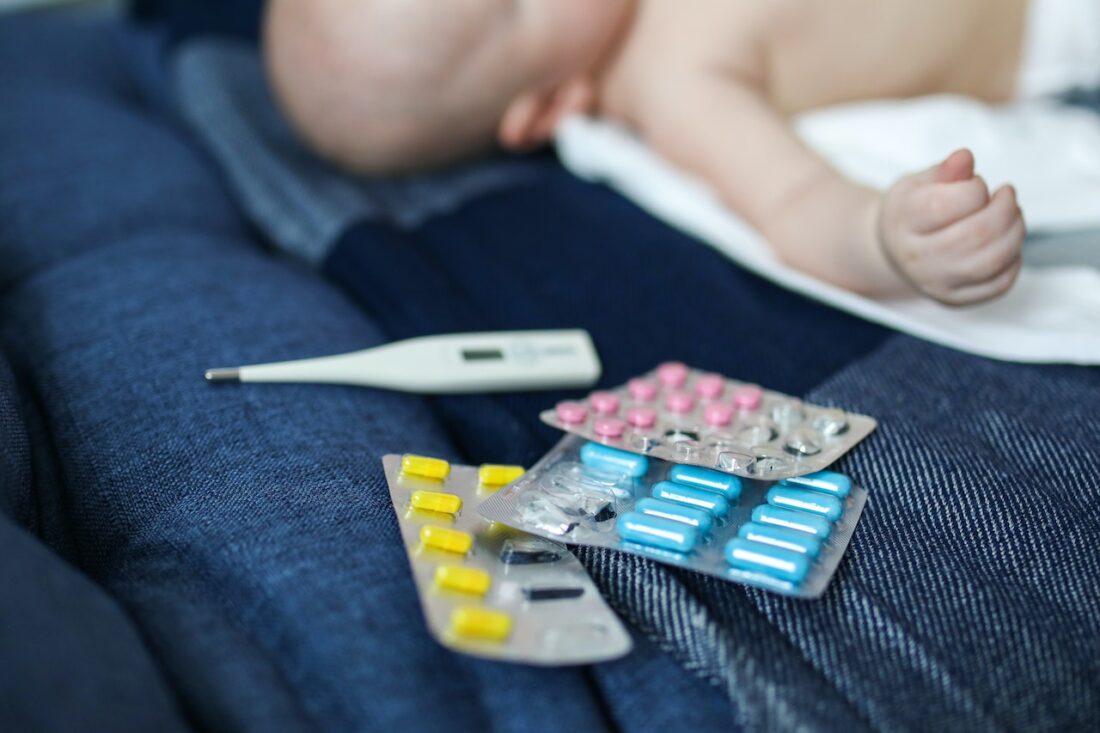
Since the pandemic began in 2020, common viruses have not followed their typical seasonal patterns, and this is especially true of Respiratory Syncytial Virus (RSV).
Dr. Hassan Alzein of Alzein Pediatrics in Evergreen Park and Oak Lawn says, “Pediatricians are seeing cases of RSV at more unusual times of the year, and more severe than usual. RSV can be very scary for both children and their parents, so we are here to help you understand this virus and ways to treat and prevent it.”
What is RSV?
Respiratory Syncytial Virus (RSV) infects the respiratory tract, causing coughing, sneezing and a runny nose. RSV is very common; nearly every child will have RSV by the time they are 2 years old. RSV causes the body to produce a large amount of mucous, though most children experience mild symptoms, with perhaps a decrease in appetite and a mild fever.
What are the symptoms of RSV?
RSV typically resembles a cold with congestion, dry cough, low-grade fever, sore throat, sneezing, and a headache. “Most children typically recover quickly and completely,” says Dr. Alzein.
However, even a mild to moderate case of RSV can be dangerous, especially for young children and older adults, notes Dr. Alzein. “RSV can develop into pneumonia or bronchiolitis, which includes additional symptoms of fever, severe cough, wheezing, rapid and difficult breathing.”
How is RSV treated?
In most cases, mild to moderate RSV can be treated at home.
Dr. Alzein recommends, “Help your child recover from RSV by encouraging them to drink lots of fluids such as water and warm (not hot) broth, throughout the day. You can relieve runny noses with a bulb syringe and saline drops or frequent nose blowing (followed by thorough hand washing with soap and warm water) and using a cool mist humidifier. Your child should recover in about a week or so, with no need for medical intervention.”
Is my child at risk of severe RSV?
Up to 80,000 children who contract RSV will need medical care or hospitalization each year. Dr. Alzein notes, “Treatment could include oxygen, IV fluids or medications.”
Children with a higher risk for severe RSV complications include:
• Babies born prematurely
• Any infant younger than 6 months
• Children younger than 2 years with chronic lung or heart disease
• Children with weakened immune systems, including children who have recently been ill.
• Children who have difficulty swallowing or blowing their nose
• Children with neuromuscular challenges
When should I call my pediatrician, go to Immediate Care or get to the Emergency Room?
Call your pediatrician if you notice:
• Your infant has a runny nose for more than a couple of days
• A marked decrease in appetite, refusal to breast or bottle feed
• A whistling or wheezing noise while breathing
• The cough brings up mucus that is yellow, green or gray
Go to Immediate Care if your child:
• Is dehydrated, with dry diapers or no need to use the bathroom and crying without tears
• Sunken eyes
• Labored breathing, chest heaving while trying to catch a breath
• Extreme fatigue
Call 9-1-1 or get to a hospital Emergency Room immediately if your child:
• begins to breathe very quickly
• stops breathing while awake or asleep
• seems much more tired than usual
• has a bluish cast about lips, fingernails or toenails
How do I prevent RSV?
Dr. Alzein says, “Having the flu or COVID-19 lowers your child’s immunity and increases their risk of getting severe RSV. These viruses weaken and damage your child’s lungs, and then RSV weakens and damages them even more. While there is no vaccine to prevent RSV, the American Academy of Pediatricians urges all parents to get their children over the age of 6 months fully vaccinated for both the flu and COVID-19.”
RSV is, and always has been, very contagious. However, says Dr. Alzein, steps to prevent RSV are likely already in place in your home as we are now more aware of infection spread prevention. Limit the spread of RSV and other viruses and bacteria by:
- Washing hands frequently, especially after toileting, nose blowing and before eating
- Requiring people to wash their hands before they touch your children
- Avoiding exposure to people who are ill
- Not kissing your child when you have a cold or feel ill
- Cleaning and disinfecting your home frequently, especially when any family member has a cold
- Washing toys regularly
- Not sharinganything that goes in or around the mouth, such as forks, glasses, lip balm and more
- Eliminating smoking and NEVER allowing smoke around children. Tobacco smoke increases the risk of RSV in children.
“With proper prevention and prompt treatment, RSV can be just a mild childhood illness in your family,” says Dr. Alzein. “However, if you see symptoms of RSV are not improving or is getting worse, call your pediatrician immediately. They will make sure your child is evaluated and is given the proper care to avoid serious, long-term health and respiratory complications.”



